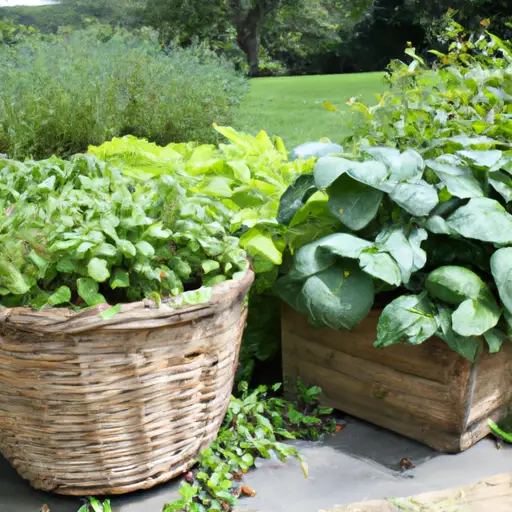Eco-Friendly Practices in Sustainable Container Gardening
Container gardening has gained popularity in recent years due to its convenience and versatility. It allows people with limited space or no access to a garden to grow their own plants and enjoy the benefits of gardening. However, as our understanding of environmental issues grows, it is essential to incorporate eco-friendly practices into container gardening for a more sustainable approach.
Here are some eco-friendly practices that can be adopted in sustainable container gardening:
1. Use sustainable materials: When choosing containers for your plants, opt for eco-friendly materials such as terracotta, clay, or biodegradable pots made from coconut coir or rice husks. Avoid plastic containers that take a long time to break down and contribute to landfill waste.
2. Choose organic and non-GMO seeds: Start your garden with seeds that are certified organic and non-genetically modified organisms (non-GMO). This ensures that your plants are free from harmful chemicals and promotes biodiversity.
3. Compost: Composting is an excellent way to reduce household waste and create nutrient-rich soil for your container garden. Utilize kitchen scraps, yard waste, or coffee grounds to make compost that will enrich the soil in your pots.
4. Water conservation: Be mindful of water usage by implementing water-saving techniques such as collecting rainwater or reusing water from cooking or washing food. Avoid overwatering by checking the moisture levels of soil regularly.
5. Natural pest control: Instead of using chemical pesticides, explore natural methods of pest control like companion planting, using insect-repelling herbs such as lavender or rosemary, or introducing beneficial insects like ladybugs or praying mantises.
6. Use organic fertilizers: Opt for organic fertilizers instead of synthetic ones that can harm the environment and add chemicals to the soil. Consider natural alternatives like compost tea, seaweed extract, or fish emulsion for a healthy dose of nutrients.
7. Encourage pollinators: Pollinators, such as bees and butterflies, play a vital role in the reproductive process of plants. Attract them to your container garden by planting flowers that provide nectar and pollen, such as lavender, marigolds, or sunflowers.
8. Crop rotation and diversity: To maintain soil health and prevent disease buildup, practice crop rotation. Rotate different types of plants in your containers each season. Additionally, diversify the variety of plants you grow to promote natural pest control and overall ecosystem resilience.
9. Reuse and repurpose: Get creative by repurposing household items as containers for your plants, such as old buckets, cans, or even shoes. This not only reduces waste but adds a unique touch to your garden.
10. Support local nurseries: Instead of purchasing plants from big chain stores that often use extensive resources for transportation and support commercial farming practices, opt for locally sourced plants from small nurseries. This helps reduce the carbon footprint associated with transporting plants across long distances.
By incorporating these eco-friendly practices into your sustainable container gardening routine, you can contribute to a healthier environment while enjoying the many benefits of gardening. Remember that even small steps towards sustainability can have a significant impact on our planet’s well-being.













